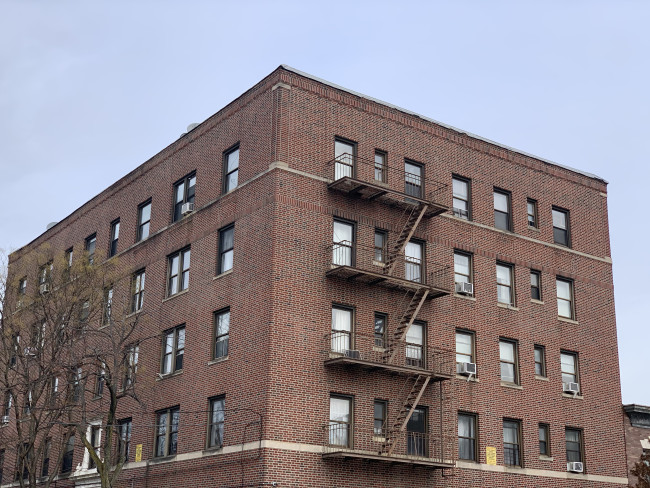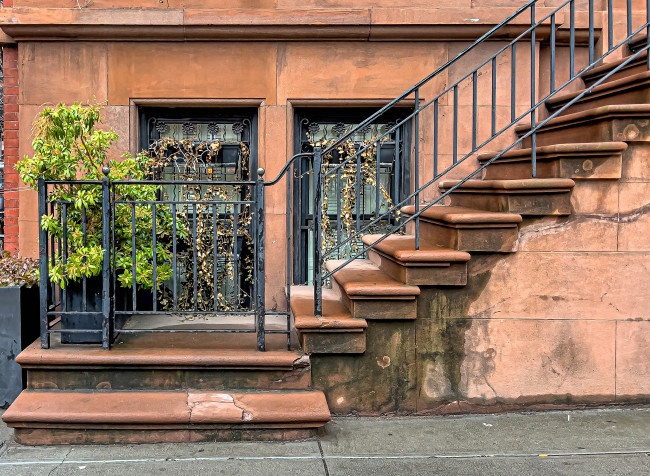Why you should check reviews from current tenants before you sign a new lease
- You gain inside intel on a building's cleanliness, maintenance, pest problems, and more
- Renters can also run a Brick Report to see if there are any significant open violations

You give a landlord a lot of information about yourself. And very often, you've only visited the apartment briefly. Think of reviews as leveling the playing field.
iStock
When you're searching for an apartment in New York City's complicated rental market, doing your homework on a new place is more important than ever. Take it from us: Doing research on a building before you sign the lease means you are more likely to avoid a bad situation.
One way you can do that is to read reviews from current tenants—just like you would read restaurant reviews before making a dinner reservation. Building ratings aren't necessarily new—Apartment Ratings, which is also a listing site, has been doing this since 2000—and newer listings and review platform openigloo said it provides even more in-depth scorecards on the city's apartments and buildings. You can also check Yelp to see what current or former tenants have to say.
With all reviews, it's important to bear in mind that it is human nature to write a review when there's something to complain about, but at least you can see the issue being raised.
Another suggestion is to pull a Brick Report on the address. Our free feature taps New York City data and can tell you about any Housing Preservation and Development violations, pest reports, Department of Building complaints, energy ratings, evictions, crime statistics, and more. You'll want to pay attention to the more serious and current violations—not every issue that shows up is a red flag.
Want to check for warning signs on a building before you rent it? Run the address through the Brick Report and get a real estate background check built from all of New York City's Open Data in one place. Brought to you by Brick Underground.
After all, when you rent in NYC, you give a landlord a lot of information about yourself. And very often, you've only visited the apartment for 10 or 15 minutes. Think of reviews as leveling the playing field, at least a bit.
[Editor's note: A previous version of this article was published in July 2023. We are presenting it here with updated information for December 2025.]
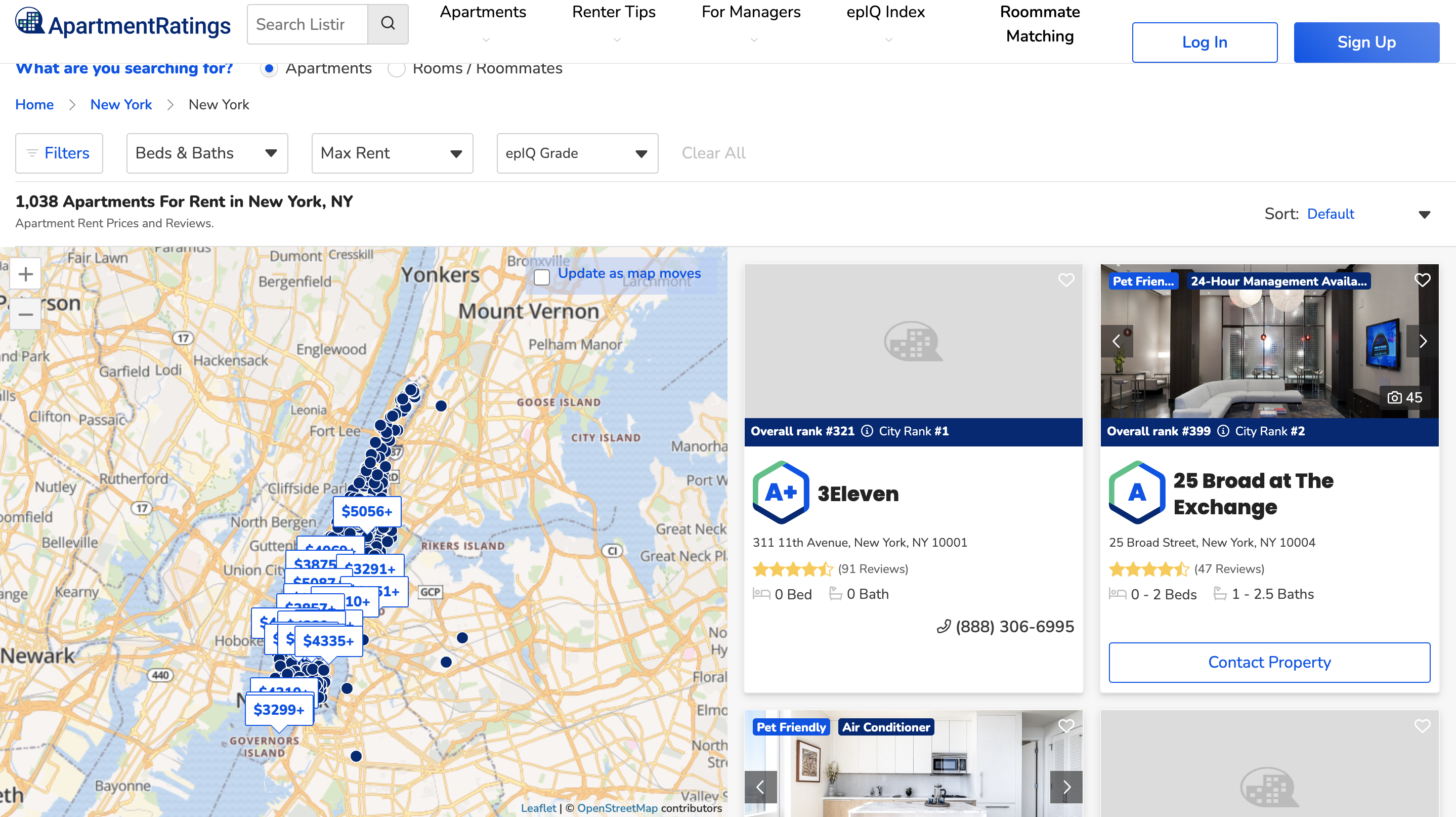
How apartment building reviews work
Want to save time by homing in on top-rated landlords from the get-go? If you are looking for a place in Manhattan, longtime site Apartment Ratings uses an "epIQ index" that's designed to "give you an accurate and authentic understanding of what life at a community is like prior to signing a lease." (The site doesn't cover the outer boroughs.) You can't look up a landlord by name, but it's a great way to combine your apartment search with tenant ratings in one click.
Tenants rate buildings on six categories: noise, safety, maintenance, grounds, and office staff as well as neighborhood. Management receives a letter grade depending on whether they respond to reviews and how quickly—and scanning different buildings shows that failing to respond results in an F that lowers the overall rating, so if you see an apartment you like with a D+ grade, weigh that against how many stars it has from tenant reviews (as shown below).
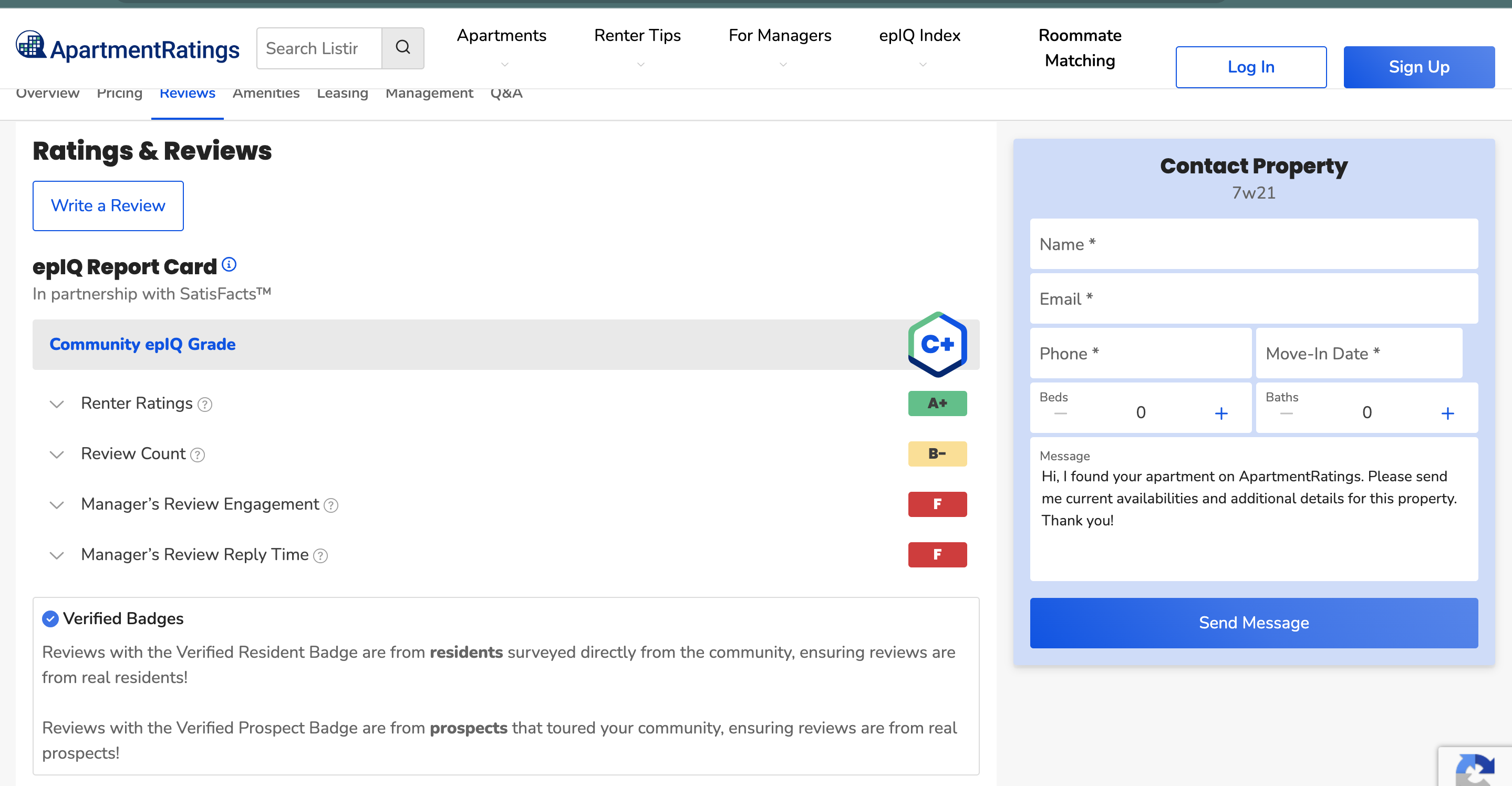
The results are presented in a familiar report-card format. There's also a place for tenants to leave comments.
You can limit your search to buildings with an A+ epIQ index, however doing so sharply limits your search results. Other search filters include price, size, and the usual amenities. The map feature lets you zoom in on desired neighborhoods.
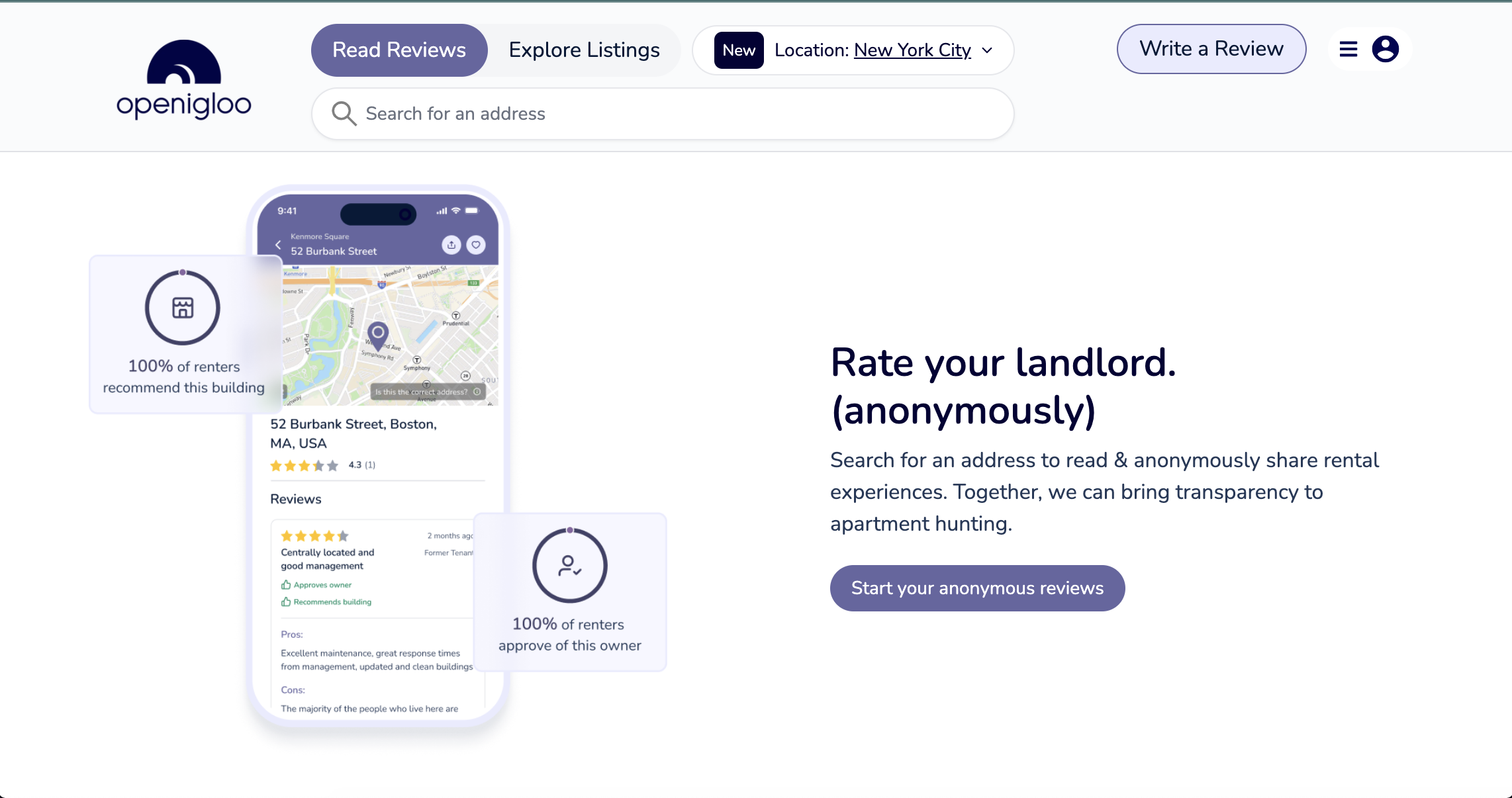
openigloo is another go-to resource that lets tenants read and anonymously share building reviews, browse available listings, and apply to apartments they are interested in. Entering a building's address brings up general information about the building, the names of the property owners, and a snapshot of violations pulled from the city.
You will also see how many stars the building has based on tenants reviews—though if you want to read those reviews, you'll need to first submit your own anonymous review of a building you live or have lived in.
Allia Mohamed, openigloo's CEO and co-founder, said that as a NYC newcomer, she didn't know much about how renting here worked. So when the heat stopped functioning in her second apartment—in the middle of the winter—she had an epiphany about finding a place with a good landlord.
"I knew they were out there, and I wanted a platform to help find them," she said. "Renters are asked for a million and one documents when they apply for an apartment—it's time they got some information in return on their prospective buildings and landlords."
That's the thinking behind openigloo. According to Mohamed, "We believe that renters are entitled to know the good, bad, and ugly about an apartment before they move in and get their questions answered: Is the building rent-stabilized? How much does the rent go up every year? Are there any open violations?"
The site asks users to rate their buildings on a variety of factors like water pressure, cleanliness, pest control, and the responsiveness of the landlord. You can also leave comments about what you liked and didn't like about the building as well as what might improve the rental experience. Mohamed said early feedback from users prompted the team to add more rating criteria like garbage management and how likely you are to get your security deposit back quickly.
Looking for a landlord with a good reputation—and a rental agent you can trust? Put your search in the hands of The Agency, a tech-savvy real estate brokerage and Brick Underground partner. Founded by a pair of Yale grads in response to the frustrating apartment-search experiences of classmates and colleagues, The Agency will charge a broker's fee of 10 percent of a year's rent instead of the usual 12 to 15 percent if the apartment is an "open" listing and you sign up here. Bonus: The agents at The Agency are a delight to deal with.
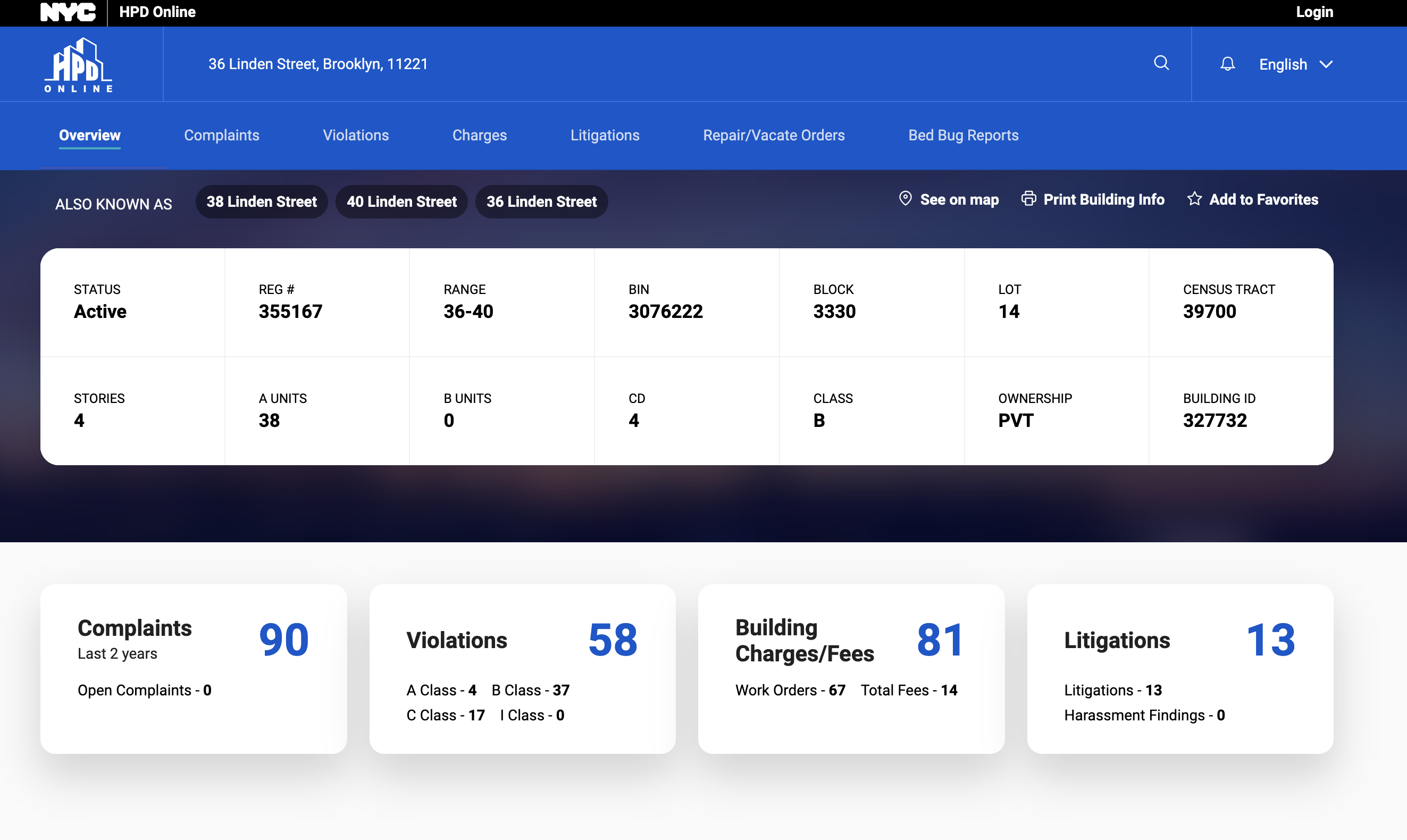
How to find vital statistics on a building
There are multiple public online resources for researching a specific landlord before you move in. Among those is NYC's Housing Development & Preservation (HPD), which lets you enter a building address to see a snapshot of complaints, violations, litigations, and bedbug reports, and then to drill down to get the details on each of those categories. Violations include safety concerns like failing to provide self-closing public doors and adequate lighting as well as more hazardous issues such as vermin, lead paint, and lack of hot water, heat, or electricity.
And you may want to consider checking the Public Advocate’s list of the 100 Worst Landlords in NYC to see if your potential landlord's name is there. This ranking is based on open HPD violations at all of their buildings and names the buildings as well.
—Earlier versions of this article contained reporting and writing by Emily Myers. It was updated for December 2025 by Jennifer White Karp.
You Might Also Like



















